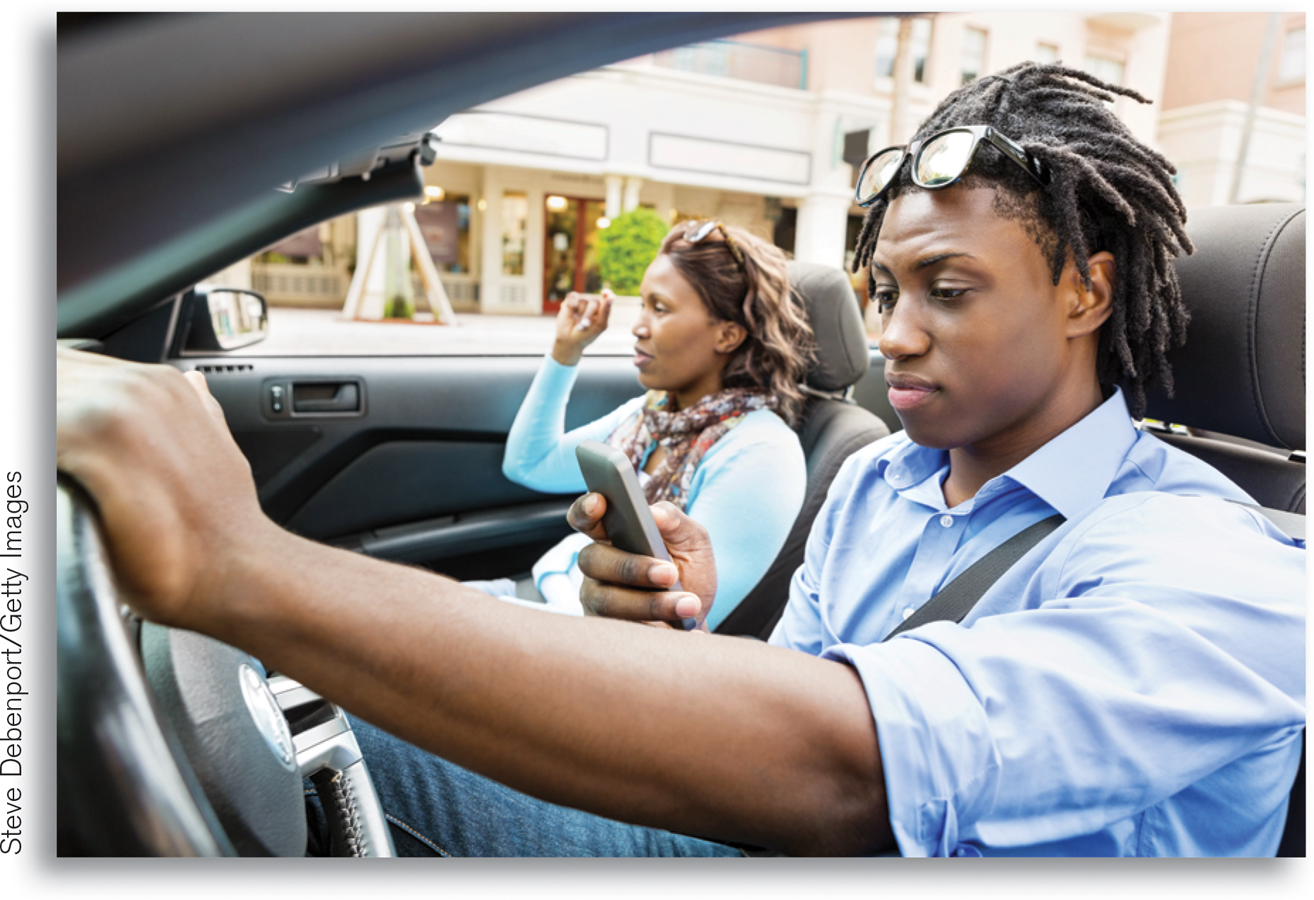External Costs and Benefits
An external cost is an uncompensated cost that an individual or firm imposes on others.
The environmental costs of pollution are the best known and most important example of an external cost—an uncompensated cost that an individual or firm imposes on others. In a modern economy there are many examples of an external cost that an individual or firm imposes on others. A very familiar one is the external cost of traffic congestion: an individual who chooses to drive during rush hour increases congestion and has no incentive to take into account the inconvenience inflicted on other drivers. Another familiar example is the cost created by people who text while driving, increasing the risk of accidents that will harm others as well as themselves (see the upcoming For Inquiring Minds).
Pollution leads to an external cost because in the absence of government intervention those who decide how much pollution to create have no incentive to take into account the costs of pollution that they impose on others. In the case of air pollution from a coal-
An external benefit is a benefit that an individual or firm confers on others without receiving compensation.
External costs and benefits are known as externalities. External costs are negative externalities, and external benefits are positive externalities.
We’ll see later in this chapter that there are also important examples of external benefits, benefits that individuals or firms confer on others without receiving compensation. For example, when you get a flu shot, you are less likely to pass on the flu virus to your roommates. Yet you alone incur the monetary cost of the vaccination and the painful jab. Businesses that develop new technologies also generate external benefits, because their ideas often contribute to innovation by other firms.
External costs and benefits are jointly known as externalities, with external costs called negative externalities and external benefits called positive externalities. Externalities can lead to private decisions—
Talking, Texting, and Driving
Why is that person in the car in front of us driving so erratically? Is the driver drunk? No, the driver is talking on the phone or texting.
Traffic safety experts take the risks posed by driving while using a cell phone very seriously: A recent study found a six-
One estimate suggests that talking while driving may be responsible for 3,000 or more traffic deaths each year. And using hands-

The National Safety Council urges people not to use cell-
Why not leave the decision up to the driver? Because the risk posed by driving while using a cell phone isn’t just a risk to the driver; it’s also a safety risk to others—